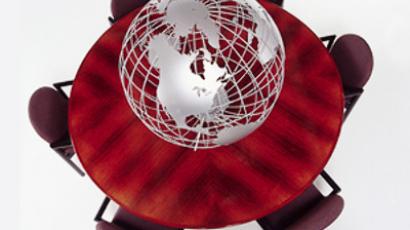Lobbyists making money on financial reform
US President Barack Obama hopes to sign a financial reform bill by July 4. Legislation has now passed in both the US Senate and the House of Representatives, and most believe the biggest hurdles have been overcome.
But a new report published by the Center for Public Integrity illustrates that the creators of the bill aren’t just those who report for duty on Capitol Hill. In fact, an overwhelming majority work on K Street.
"In the first quarter of 2010 the amount spent on lobbying on financial reform was conservatively at least $133 million dollars," said Gordon Witkin, from the Center for Public Integrity.
In this case, it paid off. On the street synonymous with lobbying in the US capital, there are differing opinions about the power and persuasion of lobbyist.
”They’re important at voicing opinions which is good. If it gets overly influential that’s probably bad,” said Washington resident Anne Choate
“There’s no question that a lot of the lobbyists around town that are working for corporate interests that they do have a lot of power. They serve a particular role. I think the bigger problem is campaign finance reform and the amount of money it takes to get elected to congress that is ultimately what gives lobbyists so much power,” said Larry Williams, a lobbyist himself.
In the case of financial reform, 175 groups from the financial sector hired lobbyists; 91 from the utilities sector and 66 from the manufacturing sector, according to the Center for Public Integrity.
The Chamber of Commerce which is the biggest business lobby, had 85 lobbyists involved in this particular battle; the American Bankers Association, 53 lobbyists; the mortgage bankers association—29.
It seems the lawmakers once again are also the dealmakers, but many argue that is simply the way Washington works.
“If we’re going to ask members of Congress from both parties to pass regulatory reform legislation reform on their own without input from anybody, everybody all sides we’re in a world of trouble, because these folks don’t have that expertise,” said Paul Miller, the Former President of the American League of Lobbyists
Big banks have become synonymous with public anger and outrage, but will their punishment fit the crime? Many worry that in the end, the people’s interest many not be as well-represented as most would hope.












